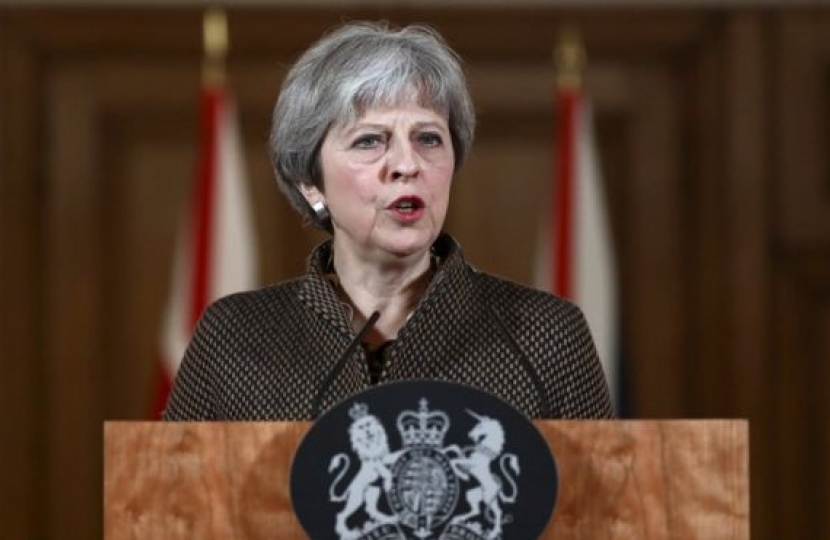
Since reports of the use of chemical weapons by the Assad Regime in Syria first emerged last week I have received a lot of correspondence from constituents about the UK’s response and specifically, the decision of the Prime Minister to participate in the co-ordinated retaliatory strikes against the Syrian Regime.
The strikes were a response to an attack that took place in Douma on Saturday 7th April in which up to 75 people, including young children, were killed and as many as 500 people were injured. First-hand accounts from aid workers detail the horrific suffering of the victims, including suffocation, skin discolouration, a chlorine-like odour at the scene and the images circulated in the media show Syrian people lying dead with foam in their mouths.
The decision taken by the Prime Minister to join in a co-ordinated attack against the Syrian regime with two of our closest allies is one that I support wholeheartedly. These were limited, targeted strikes aimed at degrading the Syrian regime’s ability to make and use chemical weapons. As the Prime Minister said in her statement, this was not about regime change or intervening in a civil war. In this case, swift action was required and much of the information on which the Cabinet based its decision was classified intelligence that could not be shared with all 650 Members of Parliament.
When the Cabinet met on Thursday it considered the advice of the Attorney General, the National Security Adviser and the Chief of the Defence Staff in addition to the most up to date intelligence. Had Parliament been recalled, the majority of MPs, myself included, would have been casting their vote solely on the limited information available in the public domain and without access to the significant body of intelligence that the Prime Minister had based her decision on.
As I said in the House of Commons Chamber on 17th April, the obvious and inevitable consequence of seeking prior parliamentary approval for airstrikes would have been to give the Syrian regime a heads-up on our plans and a debate on what, where, how and when the attacks would take place would have given the regime the opportunity to move the very weapons that we were seeking to destroy. In her response to me the Prime Minister stressed the importance of planning to ensure that we are able to do these strikes in a timely and effective fashion as well as the importance of keeping certain operational information not public, to protect our servicemen and to ensure that we are effective.
An alternative path would have been preferable but sadly the actions of both the Russian and Syrian regimes left the Prime Minister no meaningful diplomatic alternative on this occasion. This was not the first time that the Syrian regime had used chemical weapons against its people and in the past, the Government has sought to stop the use of chemical weapons through diplomatic channels. Unfortunately, the international community’s diplomatic efforts have proved ineffective and despite promises by Russia following the sarin attack in 2013 that it would work with the Organisation for the Prohibition of Chemical Weapons (OPCW) to ensure the Syrian regime dismantled its chemical weapons programme, these commitments have evidently not been met. On any occasion where there has been signs of chemical weapons being used, attempts to hold the perpetrators to account have been blocked by Russia at the UN Security Council. There have been six such vetoes since the start of 2017 and just last week, the Russians vetoed a draft Resolution that would have established an independent investigation into this latest attack.
While it was of a much lower magnitude, the use of a nerve agent on the streets of the UK in recent weeks is part of this pattern of disregard for international norms which dictate that chemical weapons should not be used and it is in Britain’s national interest to prevent the use of chemical weapons becoming normalised. Therefore while the strikes were specifically about deterring the use of chemical weapons by the Syrian regime, they also send a clear signal to other countries who believe they can use chemical weapons.
While I therefore believe that limited military action was justified in this case, it is still ultimately a political solution that is needed to secure peace for the Syrian people and going forward there must be a wider diplomatic effort to resolve the conflict at large.
